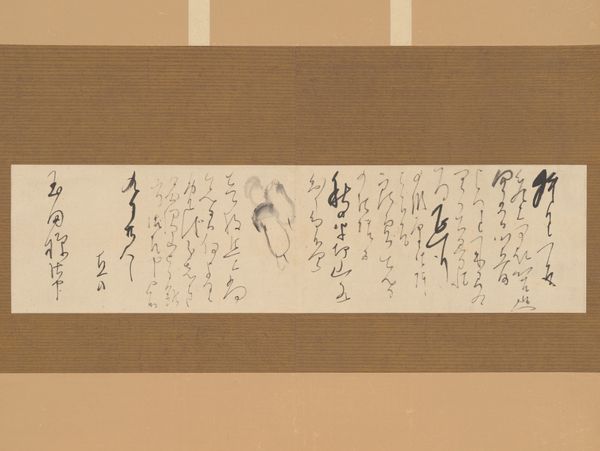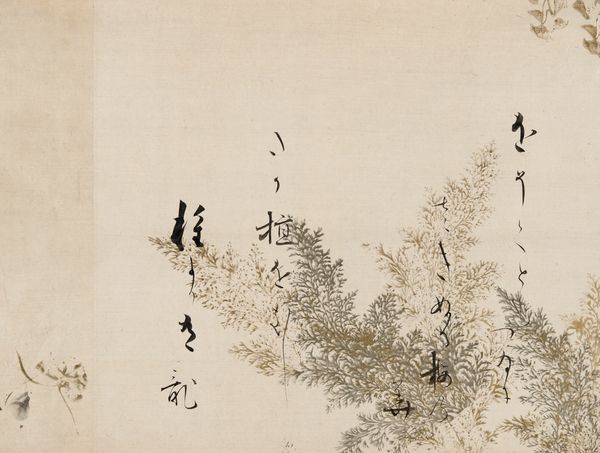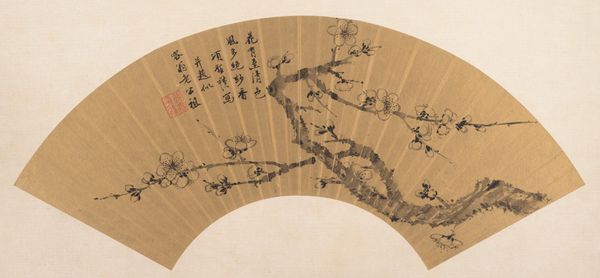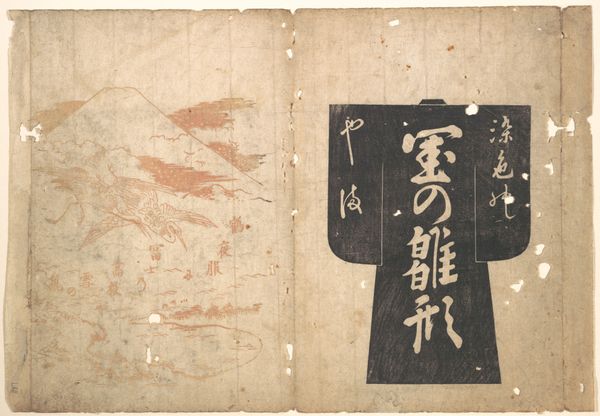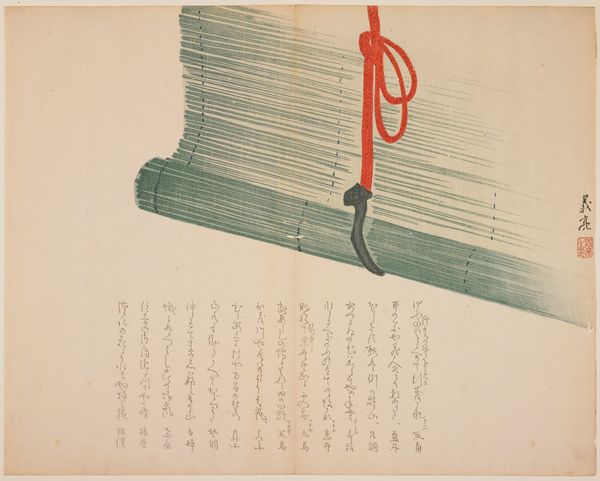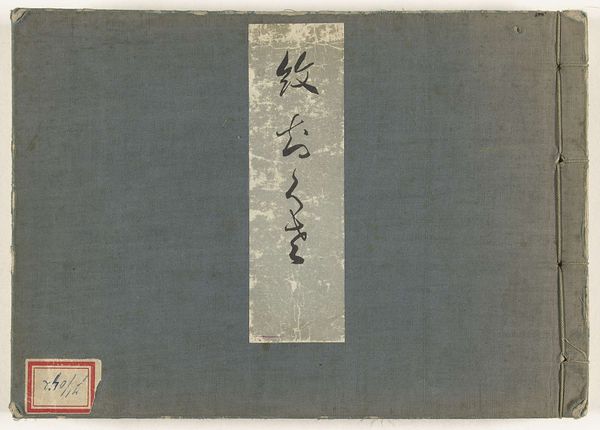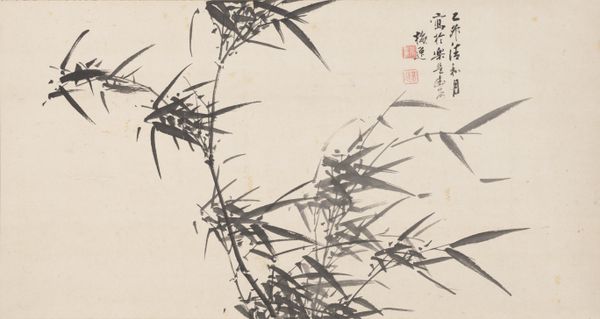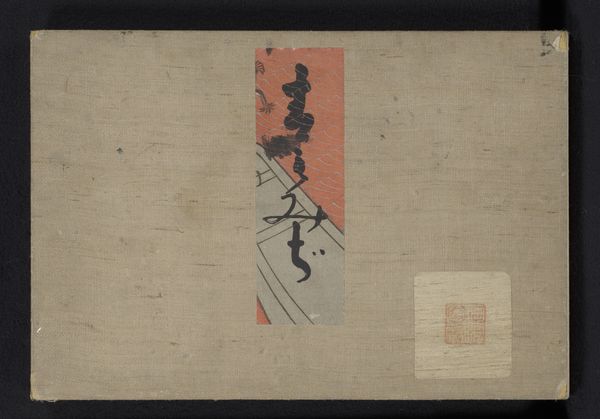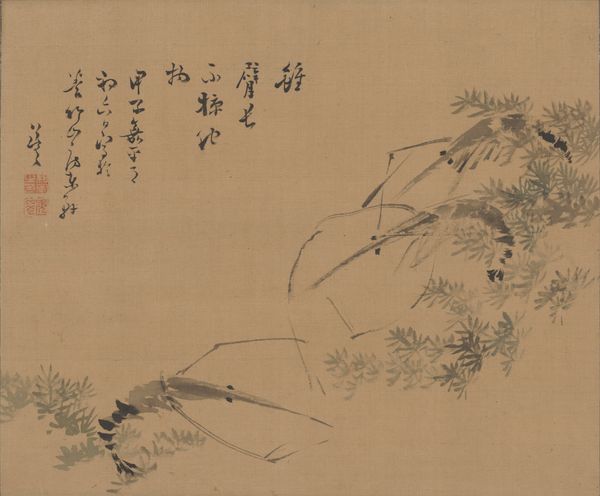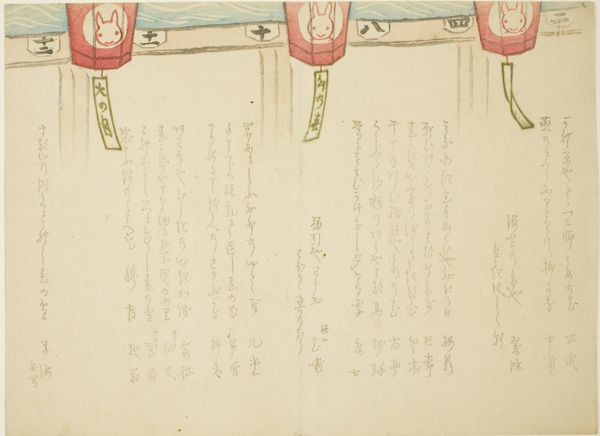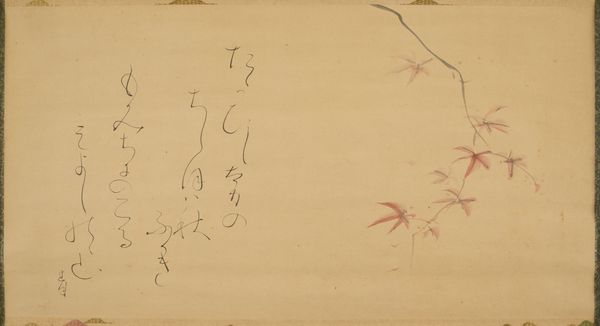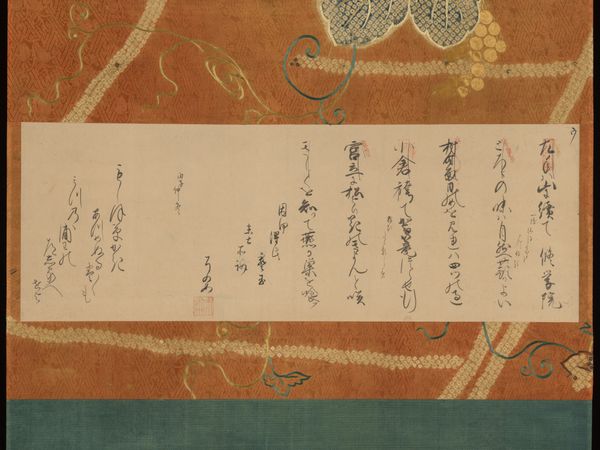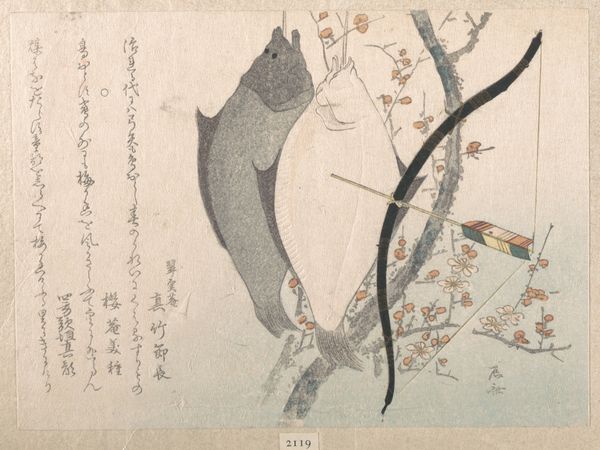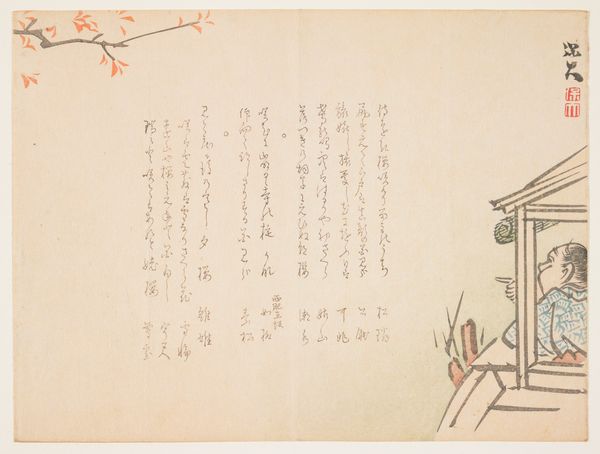
print, watercolor, ink
#
water colours
# print
#
landscape
#
ukiyo-e
#
japan
#
watercolor
#
ink
#
orientalism
#
ink colored
#
watercolor
Dimensions: 7 1/4 x 9 3/4 in. (18.4 x 24.8 cm) (image, sheet)
Copyright: Public Domain
Takahashi Hakō made this print, Shrine Gates, using woodblock printing, a technique known as *mokuhanga*. Look closely, and you’ll notice how the materiality of the wood profoundly influences the work’s appearance. The image is built up through layers of ink applied with a *baren*, a flat, round tool used to transfer the design onto paper. The ink is absorbed into the paper, creating soft gradations of color and a subtle texture, and the wood's grain may subtly appear, adding depth. Japanese woodblock prints are not the product of a single hand. The division of labor in *mokuhanga* – between artist, block carver, and printer – reflects a highly collaborative mode of production, embedded in a complex social history. It’s a process that asks us to think about the value of teamwork, and the subtle hand of labor that has shaped the image before us. Understanding the materials and processes used in *mokuhanga* allows us to appreciate the profound artistry that lies in every print.
Comments
minneapolisinstituteofart about 2 years ago
⋮
To commemorate the arrival of a new year, poetry societies convened special gatherings during which they composed celebratory and seasonal poems. They then published the best of these verses in print format, often hiring artists to provide an appropriate image. It was typical for such prints to be made with special care as the festivity of the season justified the higher cost of expensive colors and specialized techniques. Featuring only eight poems, this print must have been commissioned by a rather small group. A line of the red torii gates leads the way to a Shinto shrine, a traditional destination on New Year's Day, where people offer prayers for a health and prosperity in the coming months. Near the gateways stands a plum tree with small red buds. Because the Japanese traditionally observed the lunar New Year (which occurs in February or March in the Gregorian calendar), plum trees were considered the harbingers of spring, since they are one of the first plants to blossom at this time.
Join the conversation
Join millions of artists and users on Artera today and experience the ultimate creative platform.
